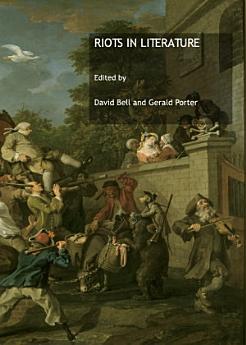Riots in Literature
About this ebook
The contributors to this volume are interested in the analysis of the interaction of official political culture and crowd politics as represented in literature and orature, and how such representations contribute to the discourses of authority and subversion of their period. The essays are wide-ranging and explore the phenomenon of riots in literature through studies of popular risings in Shakespeare; Carlyle and the French Revolution; the Rebecca Riots in Wales; popular ballads and the Indian War of Independence in 1857, post-partition riots in India and Pakistan in the 1960s, township violence in South African fiction post-1948, the 1965 Watts riots in Los Angeles in detective fiction and avant garde disturbances in France of the 1920s and 1930s.
Throughout the book, these essays focus attention on the tension-filled relationship that is perceived between literature and discourses of power and popular resistance.
About the author
Gerald Porter is Professor of Literature and Cultural Studies in the Department of English at the University of Vaasa, Finland. His main interest is in radical and vernacular song and its transmission, a field in which he has published The English Occupational Song (Umeå, 1992) and (with Mary-Ann Constantine) Fragments and Meaning in Traditional Song from the Blues to the Baltic (Oxford University Press).







